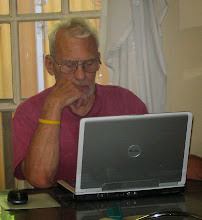American Culture
What's that? I guess it depends on whom you ask. You've probably heard the story of the California school boys who got in a bit of trouble for wearing patriotic American T-shirts to school on Cinco de Mayo (Fifth of May). To some Americans, that was outrageous.
After the Mexicans gained independence from Spain, Napoleon III of France and a group of Mexican monarchists backed that clown Maximilian to become Emperor of Mexico. The Mexicans pretty well ended the adventure when their Army defeated a French force at Puebla, Mexico on May 5, 1862. In Puebla, the date is celebrated as the anniversary of The Battle of Puebla. Elsewhere in Mexico, the date is generally ignored.
In the U.S., it is fun to say "Cinco de Mayo" and the date has become an excuse to drink a lot of Tequila. Some Hispanic American kids - especially in California and other border states - celebrate the day out of some sort of ethnic pride. Okay? Then, why is it not also okay for non-Hispanic American kids to wear red, white and blue T-shirts?
On November 11, a number of TV personalities observed Veteran's Day by wearing little "Buddy Poppies" on their lapels. Buddy Poppies came on the scene some time after World War One. During that war, Army surgeon John McCrae wrote a poem titled "In Flander's Fields", in which he spoke of poppies growing in the military cemetery in France. In 1918 US professor Moina Michael, inspired by the poem, vowed to always wear a red poppy as a symbol of remembrance for those who served in the war. Throughout my life, I remember the Disabled American Veterans organization selling little artificial poppies (on Armistice Day, which later became Veteran's Day) they called Buddy Poppies, to help fund their activities.
Yesterday, I was shocked when TV commentator Juan Williams, seemed to not know why people were wearing Buddy Poppies.
How is it that today, in America, more people seem to know about Cinco de Mayo, an almost insignificant event in Mexican history, than about Buddy Poppies which commemorate an event in which over 116,000 U.S. military personnel were killed?
Do events in our history need a more catchy name to survive in our culture?
Saturday, November 12, 2011
Subscribe to:
Post Comments (Atom)

No comments:
Post a Comment